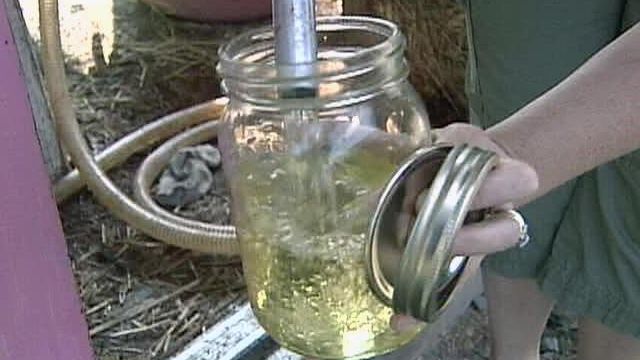Traffic
Critics Question U.S.'s Ability to Produce More Ethanol
In his State of the Union address, President Bush set a goal of reducing America's reliance on foreign oil by 20 percent over the next decade. Increased use of alternative fuels is one way to do that, but a popular bio-fuel might not be practical.
Posted — UpdatedFRANKLINTON, N.C. — In his State of the Union address, President Bush set a goal of reducing America's reliance on foreign oil by 20 percent over the next decade. Increased use of alternative fuels is one way to do that, but a popular bio-fuel might not be practical.
The Novozymes plant in Franklinton makes enzymes that help turn corn into fuel. Researchers there said they're ready to respond to Bush’s call to produce more alternative fuels like ethanol.
However, one of the biggest concerns about corn-based ethanol is the massive amount of corn needed to produce it. Many critics said the United State couldn’t produce the amount of corn it would take to make enough ethanol to fulfill demand.
The CATO Institute, a conservative think tank in Washington, said that for corn ethanol to displace gasoline in the U.S., all cropland would have to be dedicated to corn production, and 20 percent more corn would have to be found on top of that.
“The critics are right,” said Novozymes researcher Emmanuel Petiot. “There's not enough corn to fulfill President Bush's objectives of 35 billion gallons of ethanol by 2017. That's a fact.”
Novozymes officials said the company’s researchers are now working on making ethanol from wood chips, household trash, and agricultural waste. Economists said that's a good idea because even the limited production of corn-based ethanol is having an impact.
“We're already seeing corn prices going up, significantly, as we're using more corn now for ethanol,” said Michael L. Walden, a professor of agricultural and resource economics at North Carolina State University. “So that means it's already becoming more expensive to produce ethanol, and that'll begin to raise some food costs.”
Several investors are hustling to build ethanol plants in North Carolina. Some are banking on corn, others are planning to use wood chips. While critics have sounded the alarm, even backers admit the whole process will need much more work.
“Well, it's a lot of additional research and development that needs to take place in order for ethanol to be an economically viable solution for the industry, but we still strongly believe in it,” said Petiot.
Currently, North Carolina has 12 ethanol and 16 bio-diesel stations. The next pumps slated to come on line will open in the Charlotte area early this year.
• Credits
Copyright 2024 by Capitol Broadcasting Company. All rights reserved. This material may not be published, broadcast, rewritten or redistributed.





